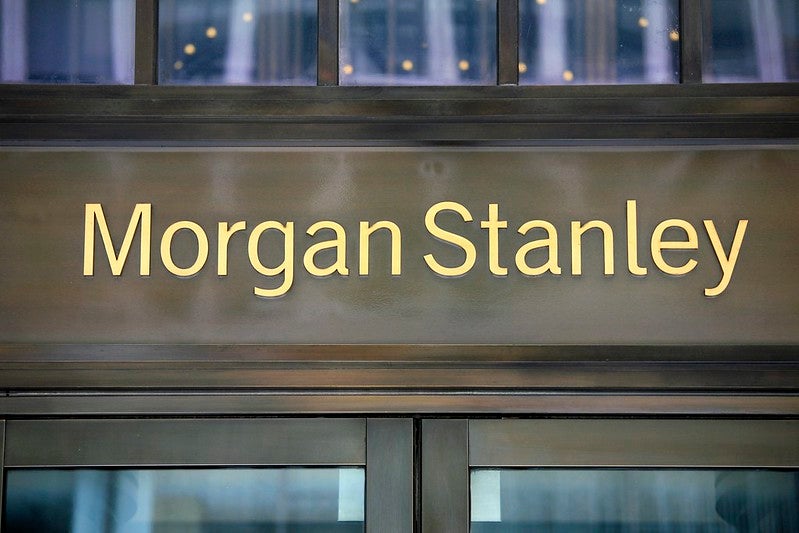time when many of its rivals have struggled. With regulation a key
industry focus, the bank’s experience of co-operating with
regulators in far-flung places could give it an advantage. Beatrice
Arnfield reports.
Avoiding bad news is proving to be a selling point, RBC Wealth
Management is finding. Thanks to the prudent management of its
parent company Royal Bank of Canada, wealth CEO Michael Lagopoulos
says the business is attracting clients who are unsettled by any
hint of insolvency at other banks.
“In the past, clients may have used two, three, or even four
financial institutions for their private banking needs,” Michael
Lagopoulos, CEO and President of the international arm of RBC
Wealth Management, told Private Banker International.
London, UK-based Lagopoulos heads the international arm of RBC
Wealth Management, reporting to wealth CEO George Lewis, who is
based in Toronto, Canada.
“What we’ve seen is that clients have been taking money away from
hard-hit organizations and consolidating their assets with us and
other highly-rated financial institutions,” Lagopoulos says. He
puts this down to RBC’s AA- credit rating and the general strength
of Canadian banks, none of which have had to be bailed out by the
Canadian government.
Sensible regulation and strict lending rules have provided Canadian
banks with strong balance sheets and put them in an advantageous
position for international expansion. RBC Wealth Management has
been quick to seize the opportunity to take market share.
How well do you really know your competitors?
Access the most comprehensive Company Profiles on the market, powered by GlobalData. Save hours of research. Gain competitive edge.

Thank you!
Your download email will arrive shortly
Not ready to buy yet? Download a free sample
We are confident about the unique quality of our Company Profiles. However, we want you to make the most beneficial decision for your business, so we offer a free sample that you can download by submitting the below form
By GlobalDataWith a core business of international trust, pension and
inter-generational wealth transfer, RBC Wealth Management was slim
in hedge funds, says Lagopoulos.
“We had much less than 10 percent invested in hedge funds and other
illiquid assets, whereas our competitors had up to 50 percent
investment,” he says. “We had a lot in fixed income and cash. We
also had index-linked notes and currency notes which are guaranteed
by RBC.”
RBC’s conservative investment policy meant that, while clients did
not receive the upside that they might have done from equity
investments, they did get 100 percent of their cash back.
RBC’s strong balance sheet also means that it has credit
availability, while other banks have been cutting back and
de-leveraging their balance sheets.
“A lot of clients are looking for credit availability,” says
Lagopoulos. “We are able to provide credit, where the collateral
and client are suitable.”
Lure of bonuses
“International private clients are not the only people attracted to
RBC’s strong balance sheet,” Lagopoulos says, referring to the
bank’s increasing appeal to new recruits.
Hit by year-end bonus freezes and uncertain futures, a raft of top
revenue-producing private bankers have joined RBC Wealth
Management, where staff bonuses were not cut. These bankers bring
with them their client base as well as their expertise.
This year, RBC Wealth Management has hired a number of bankers from
rivals to expand its London office. In January 2009, a team of four
from Citi were hired to serve non-resident Indian clients.
In February, US-based UBS private bankers Joann Holmes and Adam
Edgell-Bush were hired to provide US-compliant investments in
London.
RBC Wealth Management recently launched a new UK onshore business
initiative to be headed up by Philip Harris, ex-head of UK wealth
management at UBS. Harris has a remit to build a new team of
private bankers focused on UK clients, Lagopoulos says.
Acquisitions
RBC Wealth Management has also been taking advantage of its
parent’s strong capital position to make niche acquisitions.
“It’s a nice time to be in business and to have a strong balance
sheet,” Lagopoulos says. “We are one of the few people who are able
to buy at depressed market prices when competitors need to
deleverage or when they are forced by governments to sell
assets.”
Lagopoulos says that RBC is making the funds available for its
wealth management arm to expand.
“We don’t need a lot of capital to grow,” says Lagopoulos. “We have
great long-term client relationships, and we have produced strong
returns over time for our clients with little volatility.”
RBC CEO Gord Nixon confirmed his interest in RBC Wealth Management
in an interview with CNBC on 1 June 2009.
“Wealth management is one of the bank sectors that is doing well,”
he told the television channel.
In February 2009, RBC Wealth Management acquired Mourant Private
Wealth, a Jersey, Channel Islands-based international private
client trust business with operations in Jersey, Dubai and
Cayman.
With over 1,000 employees in Jersey, including 44 from the
acquisition of Mourant, RBC Wealth Management is one of the largest
financial services employers on the island.
As well as making acquisitions, RBC Wealth Management has been
setting up de nouveau operations in several locations. These
include an onshore business in Brazil and new operations in Mumbai
and Beijing.
When RBC Wealth Management opens an office in Moscow later this
year, it will have operations in all four BRIC (Brazil, Russia,
India, China) countries, where there are a substantial number of
high-net-worth individuals.
“As well as wealth management, clients in these countries also want
capital markets, merger and acquisition and IPOs,” Lagopoulos
says.
Trading on the strength of its Canadian brand, RBC Wealth
Management is seeing above-average growth in these locations,
particularly in Russia, which has an immediate affiliation with
RBC, because both Canada and Russia are rich in natural resources,
Lagopoulos says.
Regulation
An important factor driving the consolidation of private banking
worldwide is the growth of regulation, according to Guillermo Kopp,
Research Fellow at US-based consultancy TowerGroup. As an example,
Kopp points to the US, where the high cost of compliance for
private banks is providing an opportunity for Canadian banks to
snatch boutique banks such as capital managers.
“Canadians know how to work with financial regulators,” Kopp says.
“They are not continually out to find loopholes. RBC too has a
culture of ethics and compliance.”
Kopp believes that RBC’s credibility will help it attract clients
in the US, where customer trust in banks is at a low point.
Lagopoulos sees no choice but to be compliant: “Regulators are
flexing their muscles and the implications of non-compliance are
severe,” he says.
“We win trust around the world, because we have a reputation for
being compliant and for working with regulators. It’s the culture
of RBC to be regulated, to run a compliant business, and to partner
well with governments and regulators in countries. We have the
advantage of coming from a well-regulated country.”
Lagopoulos says that the way RBC complies is to hire local people
who understand local regulation and business.
“We also have segregation of duties,” he says. “Risk managers and
our compliance team report directly to head office, rather than to
business managers, and they don’t have a profit priority.”
Global reach
The main obstacle that could prevent RBC Wealth Management from
competing with top wealth managers such as HSBC is the size of its
footprint, says Kopp.
“RBC does not have the [global] reach of rivals, some of whom can
draw on a retail banking network to attract high-net worth
clients,” he says.
Banks with a wide footprint are best placed to serve customers
wishing to move money around in order to take advantage of the most
beneficial tax regulation, Kopp says.
“As regulation tightens, being able to play across international
jurisdictions is going to be a differentiating factor,” he
says.
RBC is at a strategic crossroads, according to Kopp: “Does it have
the strategic will to capitalize on the weakness of the US and
Europe and play big in global wealth management markets?
“In that case, it would compete with the likes of UBS, Credit
Suisse, HSBC, Citi, JPMorgan Chase and BNP Paribas. These players
are going to get bigger, and, if RBC decides to compete with them,
it will have to put in a lot of work. The risk for RBC is to get
trapped in the middle.”
Lagopoulos says: “With 37,000 high net worth clients and US$200
billion under management, RBC Wealth Management is already a first
tier player. Internationally, we are not in the top 5 or the top
10. But we are in the top 15.”
Lagopoulos admits that RBC’s footprint is not as large as that of
HSBC or Citi which own large retail banks.
“Instead, we focus on money centres, which have density of
population,” he says. “You have to spend a lot of time to get
global coverage. When we acquire, we focus on operations that will
bolt on to something we already do. That way, we build scale and
profitability. The right way for us is to acquire people, small
teams of people and pockets of expertise. But it is very important
that our cultures match.”
Lagopoulos says RBC is not going for global growth to cover every
eventuality.
“We focus on strategy, not on a mission to replicate the likes of
HSBC, as that is not within the strategy of our parent bank,” he
says. “We do the best we can with what we have.”
For the five years to the end of 2008, the international arm of RBC
Wealth Management saw revenue grow at a CAGR (compound annual
growth rate) of 25 percent, and profits grow at a CAGR of 31
percent. For the last financial year, ROE (return on investment)
was almost 39 percent.
“So our strategy is working,” added Lagopoulos.










